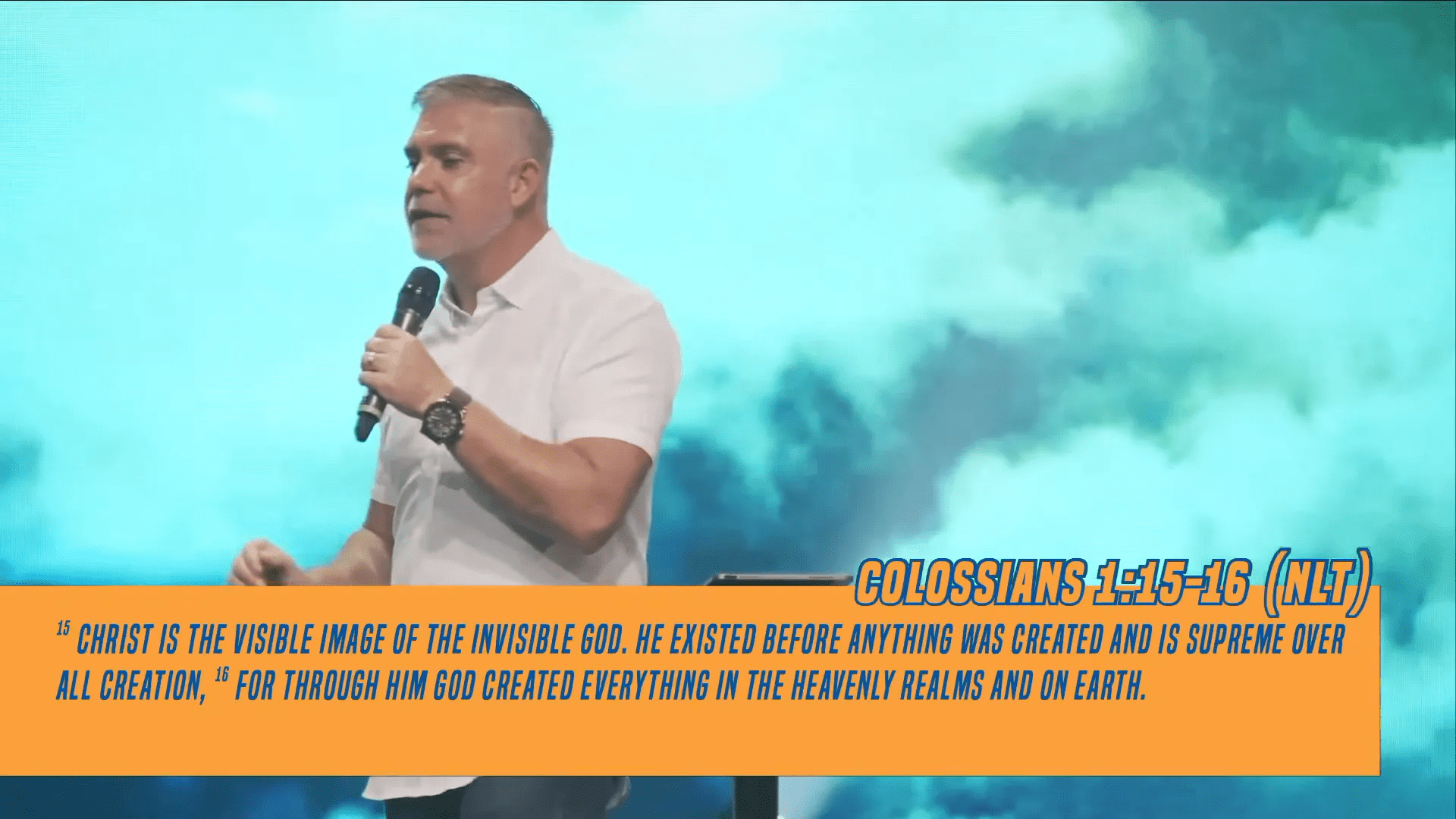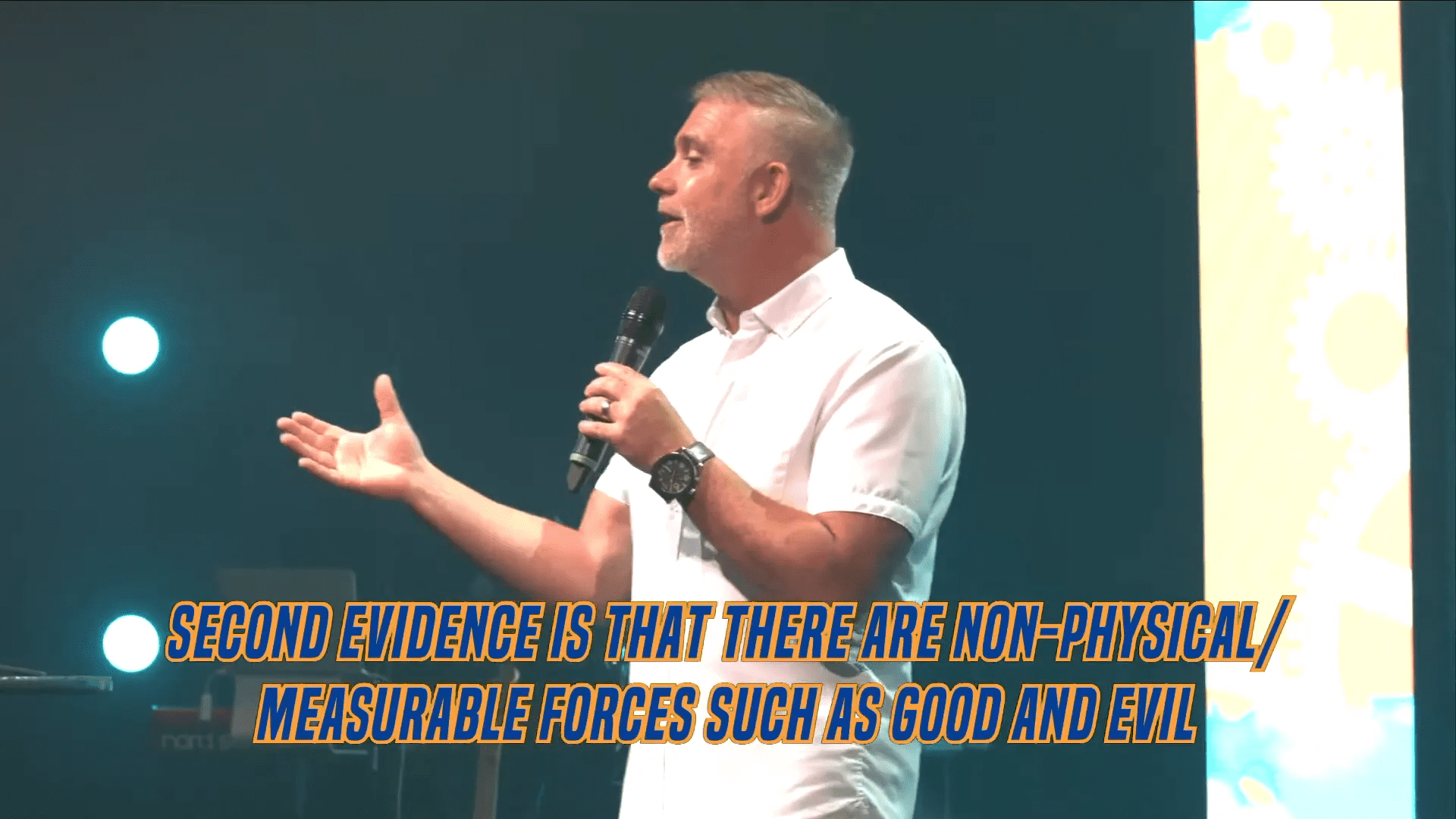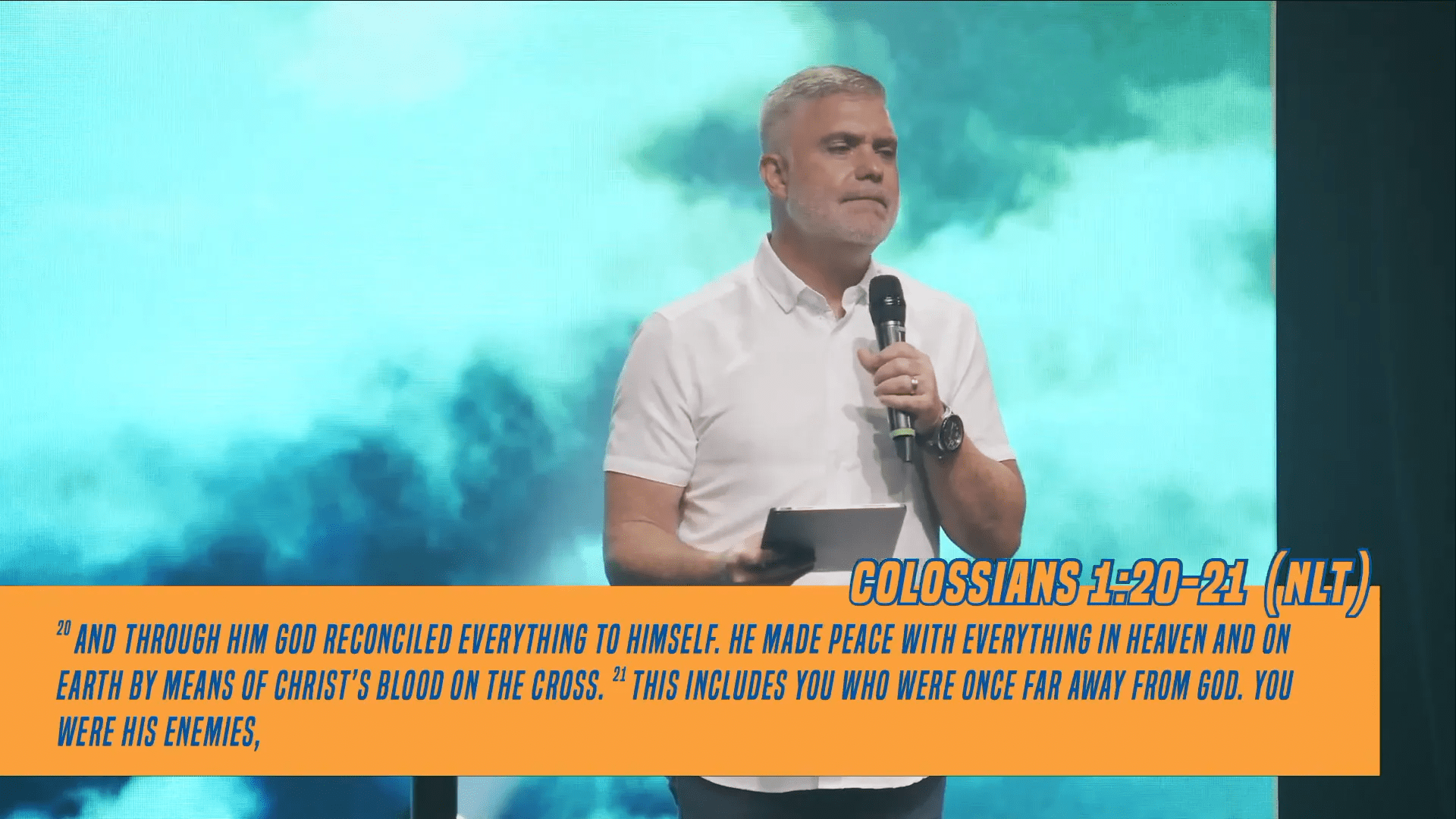Theos | Week 1 | Pastor Ben Pierce
The Existence of God: Exploring Theos
In a world increasingly inclined towards skepticism, the existence of God remains a profound question. This blog delves into the theological series ‘Theos’, focusing on the evidence and implications behind believing in a divine creator.
Introduction and Church Growth
The growth of a church is a reflection of its spiritual vitality and the impact it has on the community. In recent times, many congregations have experienced significant growth, indicative of a revival that resonates deeply with people’s spiritual needs. This is evident in the stories of individuals coming to faith, participating in classes, and engaging in the church’s mission. The excitement surrounding new believers and the collective enthusiasm of the congregation showcase a vibrant community where lives are being transformed.
Introducing Theos: Understanding God
The term “Theos” is derived from Greek, meaning God. This series aims to explore the nature of God, delving into theological discussions that challenge and inspire believers. In a world rife with confusion about faith, understanding the essence of God becomes paramount. By examining various aspects of theology, we can better grasp who God is and how He interacts with humanity.

The Challenge of Deconstructing Faith
Many individuals today are grappling with their faith, often leading to a process known as ‘deconstruction.’ This trend involves breaking down beliefs to their core components, questioning traditional doctrines, and seeking a more authentic understanding of spirituality. However, this journey can be perilous. While some may find clarity, others risk losing their faith entirely. It’s crucial to approach this process with caution, ensuring that the goal is reconstruction rather than destruction.
The Importance of Foundations
Just as a building requires a solid foundation to stand, so too does faith need strong theological underpinnings. The foundations of belief are often tested in times of doubt and uncertainty. A robust understanding of God and His nature provides stability, guiding individuals through life’s challenges. In this series, we will aim to fortify these foundations, emphasizing the significance of sound theology in personal faith journeys.

The Existence of God: A Fundamental Question
At the heart of theology lies the question of God’s existence. Many assert that faith is blind, suggesting that belief in God is irrational. However, this perspective overlooks the profound evidence supporting God’s existence. Through logical reasoning, philosophical inquiry, and scientific exploration, we can uncover compelling reasons to believe in a divine creator. Exploring this fundamental question is essential for anyone seeking a deeper understanding of their faith.
The Big Bang and Its Implications
The Big Bang theory posits that the universe had a definitive beginning, a concept that aligns with the biblical assertion of creation. This scientific understanding does not contradict faith but rather complements it. The implications of the Big Bang raise critical questions about the origins of the universe and the necessity of a creator. If everything began from a singularity, who or what initiated this monumental event? The search for answers leads us back to the existence of God.

The Creator of the Universe
Understanding the creator of the universe is pivotal in grasping the nature of God. The Bible describes God as the ultimate architect of all creation, asserting His sovereignty over the cosmos. The intricate design and order observed in the universe point to a deliberate creator, one who possesses the power to bring forth existence from nothingness. This understanding fosters a sense of awe and reverence, compelling us to explore our relationship with the divine.
As we delve deeper into the series, we will unpack these themes further, exploring how they shape our understanding of God and our faith. By examining the intersections of science and theology, we can appreciate the harmony between belief and reason, fostering a more profound connection with our creator.

Evidence from Ancient Texts
Throughout history, ancient texts from various cultures have presented creation narratives that reflect a deep-seated awareness of a divine creator. These texts often share striking similarities, suggesting a universal recognition of a higher power. For instance, the Hebrew Bible begins with the account of creation, proclaiming, “In the beginning, God created the heavens and the earth.” This foundational statement resonates with many ancient mythologies that depict a cosmic origin initiated by a divine being.
Interestingly, creation stories from diverse cultures, such as the Babylonian Enuma Elish or the Hindu Rig Veda, echo themes of divine creation and order emerging from chaos. These narratives highlight humanity’s innate understanding that our existence is not a mere accident but rather a purposeful act of creation. Such evidence from ancient texts reinforces the belief that the concept of God is woven into the fabric of human history.

Human Consciousness and Moral Awareness
The existence of human consciousness and our moral awareness serves as a compelling argument for the existence of God. Unlike any other species, humans possess a profound sense of self-awareness, capable of introspection and ethical reasoning. This consciousness transcends mere survival instincts, leading us to ponder existential questions about purpose, morality, and the nature of good and evil.
Philosophers have long debated the origins of morality. The capacity for altruism, empathy, and ethical decision-making suggests a moral framework that cannot be solely attributed to evolutionary processes. Instead, these traits point to a divine source that instills within us a sense of right and wrong. This moral compass, inherent in human nature, invites us to consider the existence of a creator who designed us with purpose and intention.

The Specificity of Life’s Conditions
Our planet’s ability to support life is another remarkable testament to the existence of a divine creator. The intricate balance of conditions necessary for life to thrive is astonishing. From the precise distance from the sun, which allows for suitable temperatures, to the unique composition of our atmosphere, every detail appears meticulously crafted.
Scientists estimate that while there may be thousands of potentially habitable planets in the universe, the specific conditions that allow life as we know it to flourish are extraordinarily rare. This specificity suggests intentional design rather than random chance. The delicate equilibrium of ecological systems, the cycling of water, and the presence of the right elements for life all point to a purposeful creator who established our world with remarkable precision.

God’s Invisible Qualities
The Apostle Paul, in Romans 1:20, articulates that God’s invisible qualities—His eternal power and divine nature—are evident in creation. The beauty, complexity, and order of the universe provide a glimpse into the character of the creator. Each sunrise, the intricate patterns of nature, and the vastness of the cosmos reflect a divine artistry that invites admiration and reverence.
Moreover, the laws of physics and mathematics that govern the universe reveal an underlying rationality consistent with a divine mind. The harmonious interplay of forces and principles suggests a designer who not only creates but also sustains the universe. This perspective challenges the notion that the universe is merely a product of random chance, emphasizing instead a purposeful origin.

The Nature of Worship
Worship is an intrinsic aspect of the human experience, transcending cultures and beliefs. As David Foster Wallace noted, everyone worships something. Whether it be science, relationships, or material possessions, our inherent desire to elevate something above ourselves reflects a longing for connection with the divine. The act of worship is not merely about rituals; it is about recognizing the ultimate source of our existence.
In a world of distractions, the call to worship the creator invites us to realign our priorities. True worship acknowledges the one worthy of our devotion—the God who created us and the universe. This recognition fosters a profound relationship, allowing us to experience the transformative power of divine love.

The Purpose of Existence
Understanding the purpose of our existence is a fundamental quest for humanity. Many grapple with questions about meaning and significance, often leading to existential angst. However, believing in a creator provides a framework for understanding our purpose. We are not mere products of chance but intentional creations designed for relationship and stewardship.
The teachings of various faith traditions emphasize that our existence is intertwined with a higher purpose. We are called to love, serve, and contribute to the flourishing of creation. This understanding empowers individuals to live with intention, fostering a sense of fulfillment that transcends material pursuits.

Conclusion: The Path to Knowing God
As we reflect on the evidence surrounding God’s existence, it becomes clear that belief is not a blind leap into the unknown. Rather, it is a reasoned response to the profound realities of creation, consciousness, and purpose. The journey to knowing God invites us to explore the depths of our existence and the world around us.
In a society increasingly skeptical of faith, the call to seek and know God remains paramount. We can confidently navigate our spiritual journeys by grounding our beliefs in the evidence presented through nature, ancient wisdom, and our moral compass. The path to knowing God is not only about intellectual assent; it is a transformative relationship that shapes our lives and the world.
